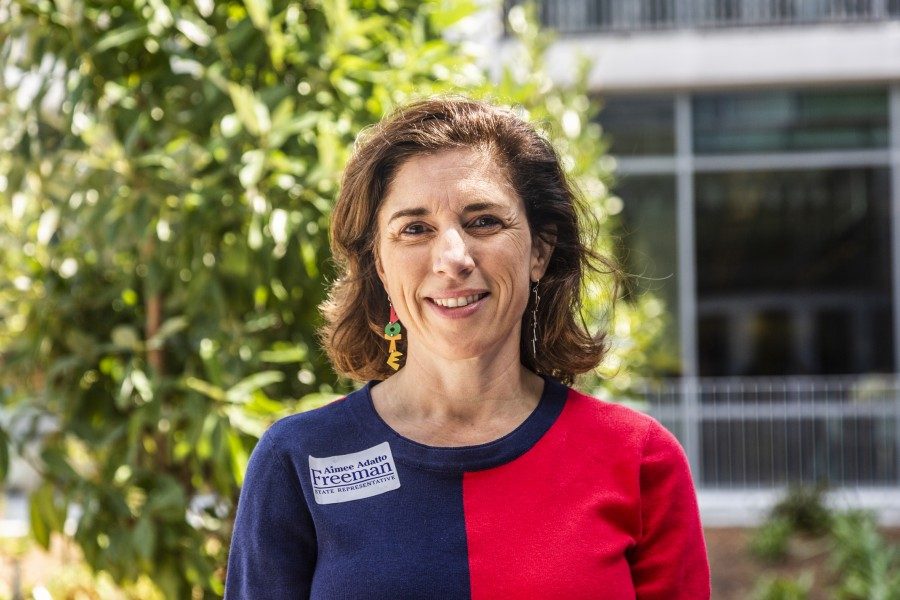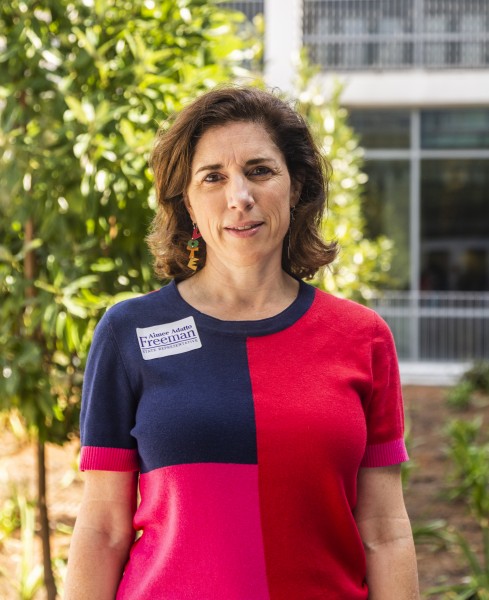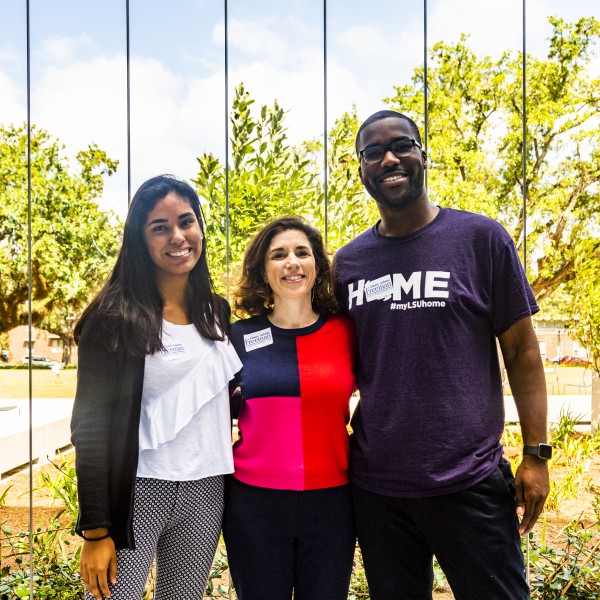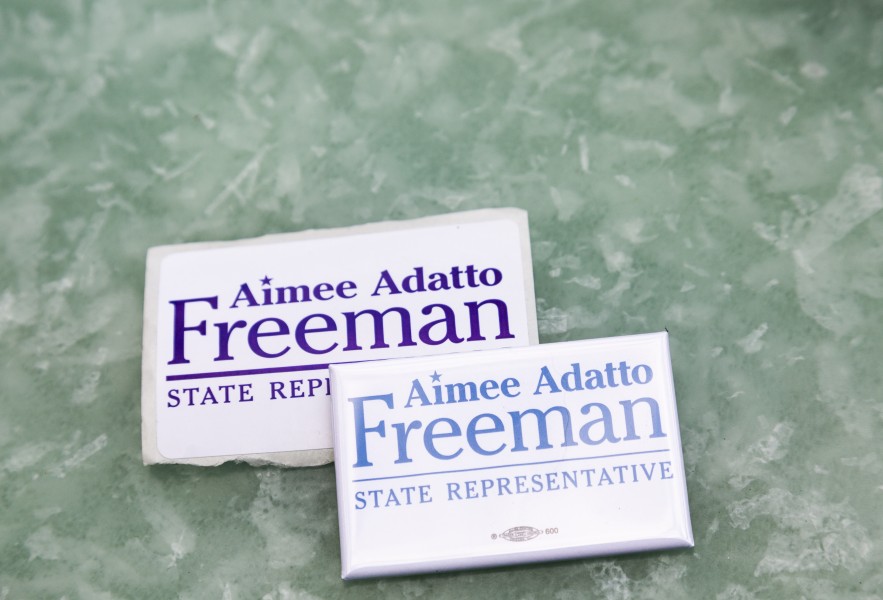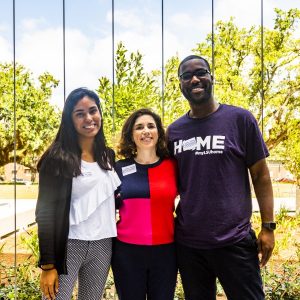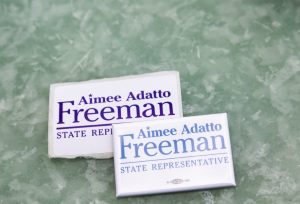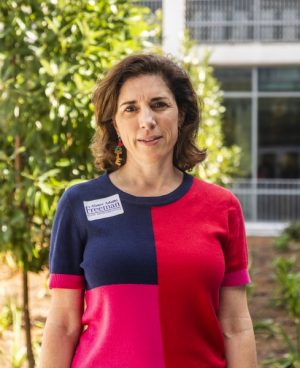Q&A with Aimee Freeman, Tulane professor in runoff for state office
Aimee Freeman is a Tulane adjunct professor and New Orleans local running for District 98 state representative. Freeman won 36% of the vote in the Oct. 12 primary and is now gearing up for the runoff election Nov. 16.
Why did you decide to run for state representative?
I was tired of us being 50th as a state on everything. We’re always ranked 50th as a state on education, infrastructure, you name it. Education and infrastructure are two of the biggest ones but also health care, we have very high poverty rates, were ranked 49th in car insurance, were 50% higher than the rest of the nation. I’m just tired of it, and I’ve lived here most of my life so I just thought I could be a part of the conversation to get us off the bottom.
What have been the best and worst parts of campaigning?
I’ve never run for office before. You meet a lot of interesting people that you wouldn’t meet otherwise, and that part has been really fun. You meet people in different industries who all care about the state and they reach out to you to tell you what they’re doing for the community. Places like Lighthouse, Louisiana that are in this district and service visually and hearing impaired, I got to tour them because they reach out to candidates. I got to go on a pistol flyover with Gina Wink, any legislative candidate was invited and we got to see how bad the coast really is from the air. That and the volunteers like some of the Tulane volunteers, I have this list of six-eight students who show up just to help, so that’s been the most awesome part. It’s frustrating being a woman running for office, I’ve learned a lot about that. You’re judged differently, you know this by what you see at the national level but if I show up for a forum I have to get my hair done, put on makeup and the guys walk in with their khakis and button downs. Sometimes that’s frustrating.
Did you expect to face sexism going into the campaign?
No, I hadn’t really thought through that part. I’ve been in business for a long time so I’m often in a room where I’m the only female so I’m used to being the only woman, but it’s different when you’re putting yourself up on a panel because women are just judged differently. Some of my friends who are elected officials locally told me that, so that’s been a real learning experience. I came and talked to women in politics in the spring but that was before the campaign kicked off so I didn’t really know how it would be. I’ve had a really good team around me, so I never felt that frustrated because even when that stuff happens I have such good consultants that I’ve hired so when stuff gets kind of weird I have a good group that follows me. The endorsement meetings get very frustrating because a lot of the decisions are made before you even get in the room. So you show up, and you’re on a panel but the votes have been counted before you’ve even stepped foot in a room.
Were you expecting to get the Gambit endorsement, and what does it mean for your campaign?
Getting the Gambit endorsement was big because Gambit is the local newspaper now. That was just purely I filled out a questionnaire like every other candidate that’s running for office right now and there wasn’t even an in-person interview. I think it helps a lot because it shows that the local newspaper knows I have the capabilities to go up to Baton Rouge and get things done. They decided to dual endorse in this race, and I actually didn’t mind because we’re so different. I sit more in the business lane so we’re not exactly the same.
How would you say you’re different from the other candidates who are running?
I’m the one who really understands what’s going on with the businesses in this state because I have my own. I’m running against three attorneys, an educator and artist, and what I do with my clients is figure out where they are now and how they can grow their businesses and employ more people, so I really understand the struggles of businesses. Sometimes small businesses are tied by ridiculous regulations. We sometimes punish small businesses by trying to overregulate them. On the environmental side, it’s a totally different story but when you’re talking about getting certifications for hair braiding, some of them are just ridiculous. Other businesses I know are having a lot of troubles with their insurance rates for their trucking, and this has become one of my defining issues. We need to lower car insurance because we are 58% higher than the rest of the country and the only state that is higher than us in car insurance is Michigan. Everybody pays too much in car insurance, no matter where you live, we push people into doing things like registering cars in other states. We’re creating a climate where we’re telling people “you shouldn’t be here” and that’s bad, this has become one of my defining issues.
Do you think your background in business gives you a different perspective? Will politics be a big change from your past jobs?
Yeah because I know how my clients run their books, I understand the margins and I’m industry agnostics so I’ve worked with everything from engineers on the west bank to architects, accountants, lawyers. They call me in and I listen, I’m a business strategist. I’ve been working it over 20 years. No, it will be a lot of negotiations and listening which is similar. It wasn’t natural as much as I was just so frustrated and I’ve always worked behind the scenes, I’ve worked on a lot of campaigns before.
What’s your background with Tulane, and how has that influenced your campaign? How do you think your campaign is going to impact your teaching?
I’ve been adjunct here for 20 years, the first class I taught was in January of 1999, and I sometimes teach in the business school but also in SOPA. I always teach a business class, I was essentially one of the first professors to being service learning to my classroom before Hurricane Katrina and now it’s part of the curriculum. I haven’t thought that far ahead yet. I would like to keep teaching definitely. Over the years I’ve hired a bunch of students for my business.
Do you think having history teaching at Tulane has helped you with your campaign?
I do think its had an impact because I love working with students. It’s an added bonus, I went here, so I’ve always had some connection to this campus. I have four kids so I’ve always had a ton of kids around whether it’s Tulane or my own. The Tulane students motivate me when I’m tired because campaigning can be really tiring, like the other day a student came with me to wave signs on a Friday afternoon and we had so much fun just because she was with me. I was so tired and didn’t want to go, but I knew she was coming so I went and we had a great time. It puts more energy into the campaign. We always try to give students jobs that interest them. They’re all volunteers so we want them to like what they’re doing. I enjoy being around everybody.
Anything else?
I plan to focus on things that are important to people in this district, I’ve noticed that a lot of my competitors have been talking about things that are problems nationally but for this district we need to focus on education, infrastructure and public safety. I’ve done a lot of work with NOPD and the Police & Justice foundation to try to help them on the business side of how they get things done in fact I had one of my Tulane classes help them register a bunch of cameras as part of their outreach for TIDES. I think those three and lowering car insurance but that’s not just this district that’s across the state. I’ve been knocking doors and hearing what people tell me and a lot of people are mad that their money’s going downtown to the tourism industry. If I see something that’s not transparent, I’m going to call it out.
Your donation will support the student journalists of Tulane University. Your contribution will allow us to purchase equipment and cover our annual website hosting costs.



